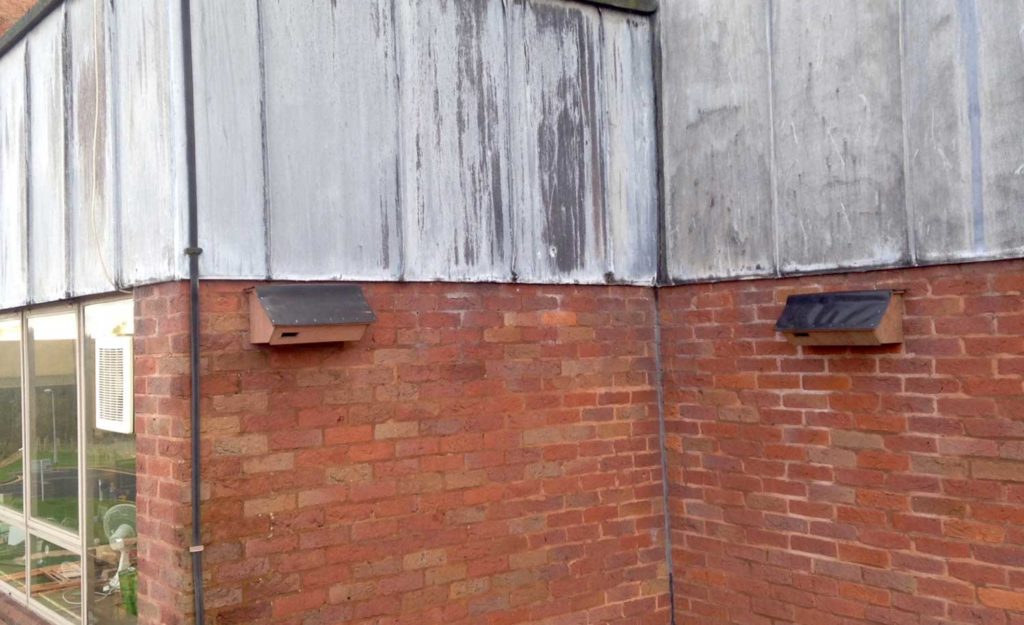Simple Changes #14
Provide spaces for wildlife such as bird boxes, insect home ponds and bat boxes – especially in new developments
Problem
The State of Nature report brings together data and expertise from over 50 organisations, revealing how wildlife is fairing across the UK. It shows how many species are in decline, for example, some bat species have declined by 95%, largely due to loss of habitat.
Simple Change
By creating homes where possible for swallows, bats, barn owls, bees, dragonflies and others, you can help to reduce this decline.
Case Study
Who is doing this?

We all have a duty to protect our native wildlife and there are so many simple actions we can take to help conserve threatened species in our towns and villages. Public bodies are responsible for significant public buildings and green spaces, which can easily be enhanced for wildlife by installing bird and bat boxes. The Swift is one such species, it uses the crevices under the eaves of our buildings to raise its young, but unfortunately modern-day building renovation usually blocks these important nesting sites, preventing any birds using them again. By installing simple Swift nest boxes, or even incorporating ‘Swift nesting bricks’ into new developments, the declining species may have a chance to recover.”
Jonathan Hulson | Living Landscape Officer, North Wales Wildlife Trust
Well-being goals you’ve contributed to
A Resilient Wales
You have earned...
A Resilient Wales
A nation which maintains and enhances a biodiverse natural environment with healthy functioning ecosystems that support social, economic and ecological resilience and the capacity to adapt to change (for example climate change)
A Healthier Wales
You have earned...
A Healthier Wales
A society in which people’s physical and mental well-being is maximised and in which choices and behaviours that benefit future health are understood
A Globally Responsible Wales
You have earned...
A Globally Responsible Wales
A nation which, when doing anything to improve the economic, social, environmental and cultural well-being of Wales, takes account of whether doing such a thing may make a positive contribution to global well-being